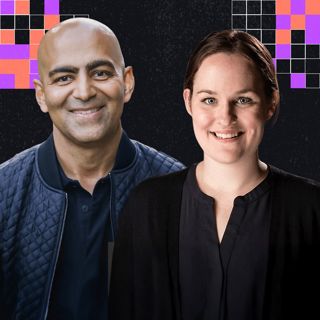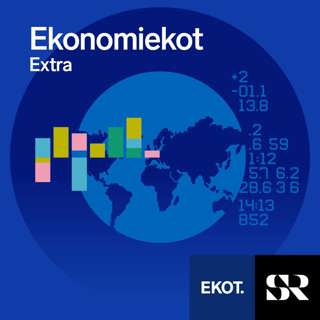
a16z Podcast: Beyond One Size Fits All for Startup Employee Options
Do we need a new pay system for the way startup employees are compensated? While many people agree that the current 90-day exercise practice — an outdated relic of when companies used to go public/get liquidity in a much shorter timeframe — is far from ideal, neither are some of the other solutions proposed so far. Because incentives matter, and behavior follows incentives. Which is fine as long as you know all the implications around what you’re incentivizing for and it aligns to what you want as a founder for your company and employees. So “let’s get it out from under the rug, let’s talk about it, and let’s design a system that works for whatever you want your company to be”, argue a16z partners Ben Horowitz and Scott Kupor in this episode of the a16z Podcast. The discussion goes beyond just the question of a 10-year exercise to other configurations — such as Snapchat’s model and Tesla’s model for timing options, as well as radical experiments like “progressive equity“. What are the tradeoffs of each approach? How does the type of company you’re building (a complex hardware or infrastructure-heavy startup for example) change things? How does the broader environment affect all these considerations (and might plans to create a new long-term stock exchange help)? Finally, is it fair to treat tenure as a proxy for the actual value a particular employee contributed to building the company? Or to optimize for earlier vs. later employees, particular if the earlier ones de-risked the company and later ones helped scale it? And what do different employees want — more options, more RSUs, cash, more ownership, more stability, more mobility? All this and more in this episode…
1 Juli 201632min

a16z Podcast: When Humanity Meets A.I.
with Fei-Fei Li (@drfeifei), Frank Chen (@withfries2), and Sonal Chokshi (@smc90) Who has the advantage in artificial intelligence — big companies, startups, or academia? Perhaps all three, especially as they work together when it comes to fields like this. One thing is clear though: A.I. and deep learning is where it’s at. And that’s why this year’s newly anointed Andreessen Horowitz Distinguished Visiting Professor of Computer Science is Fei-Fei Li [who publishes under Li Fei-Fei], associate professor at Stanford University. Bridging entrepreneurs across academia and industry, we began the a16z Professor-in-Residence program just a couple years ago (most recently with Dan Boneh and beginning with Vijay Pande). Li is the Director of the Stanford Vision Lab, which focuses on connecting computer vision and human vision; is the Director of the Stanford Artificial Intelligence Lab (SAIL), which was founded in the early 1960s; and directs the new SAIL-Toyota Center for AI Research, which brings together researchers in visual computing, machine learning, robotics, human-computer interactions, intelligent systems, decision making, natural language processing, dynamic modeling, and design to develop “human-centered artificial intelligence” for intelligent vehicles. Li also co-created ImageNet, which forms the basis of the Large Scale Visual Recognition Challenge (ILSVRC) that continually demonstrates drastic advances in machine vision accuracy. So why now for A.I.? Is deep learning “it”… or what comes next? And what happens as A.I. moves from what Li calls its “in vitro phase” to its “in vivo phase”? Beyond ethical considerations — or celebrating only “geekiness” and “nerdiness” — Li argues we need to inject a stronger humanistic thinking element to design and develop algorithms and A.I. that can co-habitate with people and in social (including crowded) spaces. All this and more on this episode of the a16z Podcast.
28 Juni 201638min

a16z Podcast: Fintech Revolution or Evolution?
How far along are we towards the vision of a "cashless, cardless, walletless, frictionless future" for fintech? We're not quite there yet, argued BuzzFeed News technology reporter Charlie Warzel in a recent feature story -- for which he got a microchip implanted in his finger while trying to go cashless for an entire month. But as revolutionary as the chip tech seems, the reality may be that fintech innovation is much more incremental, evolutionary, and still only disintermediating the physical world than truly doing new things (given what's natively possible with web, cloud, and mobile). Will that change now that Apple Pay is coming to the web? Speaking of, what is the platform and what is the product? Especially given a highly fragmented digital wallet and payments market (Warzel eventually ended up with 64 apps just to get through one month). And where, exactly, are the banks in all this? The problem, observes Warzel -- who is joined by a16z Partners Alex Rampell and Angela Strange in this episode of the a16z Podcast on all things fintech, payments, wallets, and more -- is that the customers/consumers aren't at the center of any of this. And that's a big deal given the (lack of) trust and expectations for user experience that savvy users will have for all their tech.
22 Juni 201645min

a16z Podcast: An Economics Take on the Sharing Economy
Love the term or hate it, the concept and reality of the "sharing economy" (or "gig economy" and so on) is here to stay. And in fact, argues NYU Stern professor and researcher Arun Sundararajan, it may even reduce the income distribution gap between the haves and have-nots in a way that previous shifts -- like the Industrial Revolution and traditional 20th century institutions -- never did. How? Because it's a new model for (crowd-based) capitalism -- one where we're increasing the segment of the population that owns the means of production. Or... have we just shifted value from traditional institutions to the platforms instead? Well, let's see what the data tells us. In this episode of the a16z Podcast, Sundararajan (who is also affiliated with NYU's Center for Urban Science+Progress and at NYU's Center for Data Science) shares the latest findings, economics research, and more from his new book on The Sharing Economy: The End of Employment and the Rise of Crowd-Based Capitalism. We cover the challenges of capturing this shift in GDP (as well as the challenges of GDP and measuring tech progress in general); the challenges of creating a new funding model for the "social safety net of the 21st century workforce"; the challenges of "data darwinism", reputation, and ratings; and finally, how and just who should regulate the sharing economy? The views expressed here are those of the individual AH Capital Management, L.L.C. (“a16z”) personnel quoted and are not the views of a16z or its affiliates. Certain information contained in here has been obtained from third-party sources, including from portfolio companies of funds managed by a16z. While taken from sources believed to be reliable, a16z has not independently verified such information and makes no representations about the enduring accuracy of the information or its appropriateness for a given situation. This content is provided for informational purposes only, and should not be relied upon as legal, business, investment, or tax advice. You should consult your own advisers as to those matters. References to any securities or digital assets are for illustrative purposes only, and do not constitute an investment recommendation or offer to provide investment advisory services. Furthermore, this content is not directed at nor intended for use by any investors or prospective investors, and may not under any circumstances be relied upon when making a decision to invest in any fund managed by a16z. (An offering to invest in an a16z fund will be made only by the private placement memorandum, subscription agreement, and other relevant documentation of any such fund and should be read in their entirety.) Any investments or portfolio companies mentioned, referred to, or described are not representative of all investments in vehicles managed by a16z, and there can be no assurance that the investments will be profitable or that other investments made in the future will have similar characteristics or results. A list of investments made by funds managed by Andreessen Horowitz (excluding investments and certain publicly traded cryptocurrencies/ digital assets for which the issuer has not provided permission for a16z to disclose publicly) is available at https://a16z.com/investments/. Charts and graphs provided within are for informational purposes solely and should not be relied upon when making any investment decision. Past performance is not indicative of future results. The content speaks only as of the date indicated. Any projections, estimates, forecasts, targets, prospects, and/or opinions expressed in these materials are subject to change without notice and may differ or be contrary to opinions expressed by others. Please see https://a16z.com/disclosures for additional important information.
16 Juni 201628min

a16z Podcast: Apple and the Widgetification of Everything
The world's most valuable company, Apple, made a number of seemingly incremental announcements at its most recent annual developer's conference (WWDC) -- that Apple Pay is coming to the web; that Siri is being opened up to app developers; that iMessage will suggest emoji; and many other things. Underneath all these little feature tweaks however is a bigger story, argue a16z's Benedict Evans, Frank Chen, and Kyle Russell. It's a story about -ification: the "platformification" of apps available on the Apple operating system (they've turned maps into a platform before even Google has); the "widgetification" of everything (using familiar interfaces to ensure continuity across different contexts); and the AI-ification of everyday services (like recognizing faces in photos and predicting, um, emoji). Add it all up though and it means Apple is focusing a lot more on A.I., just like other big tech companies such as Google and Facebook (and don't forget Amazon too!). Only Apple is bringing artificial intelligence to the phone -- it now also has a neural network API for instance -- only interestingly, it's focusing on doing so at the device, not cloud level. So what does it all mean?
14 Juni 201625min

a16z Podcast: Move Fast But Don't Break Things (When It Comes to Computational Biology)
The mindset of "move fast and break things", while great for code, isn't exactly great for the human body. So adding computation to biology -- especially in the slow-moving pharmaceutical industry, where drug approval can take years -- brings with it both opportunities (like drastically faster discovery and assessment) and challenges (the need for hard evidence, not just soft-ware). But there's more: We don't want just better outcomes for healthcare. We want better outcomes at a cheaper price. And that's where machine learning comes in. The benefits of such computation -- i.e., software -- can provide a powerful, frictionless, and far more cost-effective tool for biopharmaceutical research ... but it requires data. So who provides that data? Is it the pharmaceutical companies, or the payers (insurance)? How are organizations incented to overcome intellectual property silos in sharing their data? Especially since it was only relatively recently, Jeff Kindler (the former CEO of the world's largest pharmaceutical company, Pfizer) reminds us in this episode of the a16z Podcast, that the FDA even allowed data to be put in computers vs. on paper. But there's a reason the self-driving car was pushed out of the software and not the auto industry, argues TwoXAR co-founder and CEO Andrew Radin -- and it has to do with the unique nature of the developer's mindset applied to novel problems. The deterministic nature of Moore's Law -- it's not a matter of if, but when -- plays a role too, observes a16z bio fund general partner Vijay Pande. There are things that big data and simulations will be able to accomplish that a hundred lab experiments on animals can't. Still, the two mindsets will have to merge, so we can move fast ... but without compromising quality, safety, and reliability. That's the big difference between computer science and biology after all. image: mattza/ Flickr
14 Juni 201629min

a16z Podcast: Not If, But How -- When Technology is Inevitable (with Kevin Kelly)
Technology has always been a force in how we live, work, and play; only now it's accelerating and compounding in unexpected ways. But just because we don't know exactly what form that tech will take (sharing homes on Airbnb or cars with Lyft and Uber for example) doesn't mean that the larger force at play (e.g., sharing) didn't have a certain predictability to it. It was almost an inherent -- and inevitable -- outcome of the very nature of the internet itself. And there are at least 12 such inevitable technological forces, shares author Kevin Kelly in his new book Inevitable. As we now move from an "internet of information" to an "internet of experiences" -- with virtual and augmented reality, AI-as-a-service, and more -- we need to accept the inevitable. Instead of fighting tech outcomes (things like tracking for example), we need to expect it, accept it, plan for it, and civilize it. It's not just about policy and laws, though (which should follow tech use); it's about new business opportunities (imagine if the music industry had bypassed its DRM phase!), cultural change, and new opportunities for humanity, too. Especially as the future of work changes. But productivity -- and even some forms of creativity -- is for the robots, argues Kelly in this episode of the a16z Podcast (where he is joined by a16z's Chris Dixon, Kyle Russell, and Sonal Chokshi). The irony is that while technology is inevitable, we humans are best suited for what is uncertain, inefficient, and full of failure. Machines may answer, but we will ask the questions. It's not just what we want, but what technology needs.
7 Juni 201641min

Politics Over Pragmatism
"Anybody who is interested in China, who's developing things in China, who's doing business with China needs to be thinking about the instinct towards politics over pragmatism", argues New Yorker staff writer (and former Beijing resident) Evan Osnos. "It will affect your operations there. It's not the kind of thing where you can be, 'Well, look, we're not interested in politics.'" Osnos, who also wrote the award-winning book The Age of Ambition: Chasing Fortune, Truth, and Faith in the New China, shares experiences and views on the tension between one of the oldest civilizations in the world and newer story of nation-building (is it, like the buildings being built, structurally sound?); an evolving demographic (where "kids you have no idea how good you have it" may no longer be a hedge against politics); and middle-class Chinese, not just outside or elite, complaints about pollution (especially since "environmentalism has often been the front edge of a deeper change in political consciousness"). And speaking of political consciousness and complaints, what of the Trump phenomenon? In this episode of the a16z Podcast -- continuing our recent tech/policy/innovation D.C. on-the-road trip -- Osnos, who is based in Washington, D.C., shares field observations from Charleston, South Carolina to West Virginia. And from Silicon Valley, where technologists might be able to do something about the largely public health, political, and economic problem of gun violence.
2 Juni 201643min






















